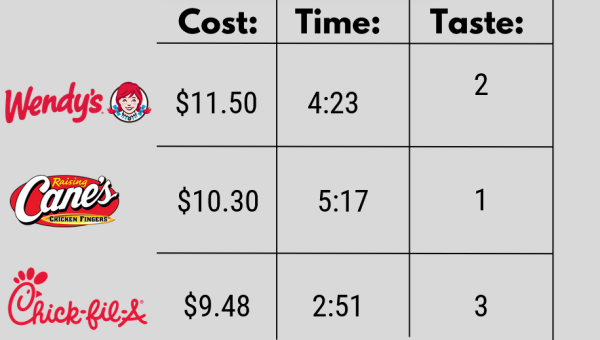Between The Yellow Pages And The Big Screen
Columnist Eli Erickson reflects on the world of publishing
Storytelling. We’ve practiced it for thousands of years, and our standards and range of capability regarding how we tell a story have evolved as we as humans continue to progress both socially and technologically. Today, there are two main ways to tell a narrative story today, and there are creative possibilities with both.
For the record, I am just going to come out and say that this article is primarily targeted towards those who see storytelling as their primary means of artistic expression, so the contents of this column may not interest people on as wide of a scale as my previous two articles. Nonetheless, if you are interested in hearing my opinion on this even if the article doesn’t strictly apply to you, feel free to stay and listen.
In our current age where it is expected that most people have a phone that at least uses internet data and accesses the web, there remain two consistent means of telling a narrative story and getting it out to the wider public- publishing a story through a book, and publishing it through a screen, such as a TV show or video game, with each path allowing for its own extent of creative freedom.
First, I will discuss books. We have already been using books for thousands of years as our main way of telling stories, and we still do to this day- while no longer as prominent as they once were, book stores remain as convenient locales to pick up physical, cover-and-page books, and in this age of advanced communication, we can even have them ordered straight to our doorstep through the World Wide Web. In my opinion, books offer the most creative freedom out of all mediums; even if you work for a publisher, oftentimes the closest thing one will often experience in the regards of “executive meddling” is the suggestions and advice of an editor.
In addition, authoring a book requires minimal education in regards to things such as college or schooling- you don’t strictly need a college degree in order to write a book that becomes a huge hit, just a sufficient imagination and a decent grasp on various writing skills such as grammar, diction, syntax, and the like- and it allows for nearly limitless creative freedom. Above all else, while getting a book published can hardly be called a cakewalk, it arguably takes the least amount of effort to accomplish, especially when you take things into account such as time- and even this is no longer necessarily a strict issue that must be contended with, now that we have the ability to self-publish works. Conversely, however, books are far less likely to attract any appreciable amount of attention in times like these, where movie and television adaptations to books are more likely to be remembered than the books themselves- if I may ask, when was the last time you heard entertainment-related social media circles bring up an interesting new book that just came out? As a result, your story may not come to have the level of notoriety that you might aspire for, at least compared to a new TV show or video game being released.
Meanwhile, more digitized stories such as TV shows, video games, and movies, seem to have the exact opposite pros and cons that books do. While stories on a digital platform may have the benefit of internet publicity, there are a multitude of creative complications that come with trying to produce such a narrative. Even though word of their existence can spread like wildfire across the web due to fans and critics and attract attention, time is of the essence when producing a story in a digital format, and every second counts. Unlike a book where you have all the time in the world to edit the work to perfection, it is expected that episodes will be released frequently. Those episodes have a limited time window to tell the parts of the story that you want to tell, and because of these things, you may lack the time to read into, edit, and flesh out the story as much as you may desire.
Additionally, executive interference is a far bigger problem in the digital narrative scene. Oftentimes, your work will be categorized based on how “age-appropriate” or “censor-friendly” it is, and one can be placed in a situation where they have to satisfy the demands of their sponsors lest they risk being cut off from necessary money and resources. This is often to the detriment of the creative process; while it is possible to release the story the way you envisioned in spite of executive demands, it is still usually an uphill battle that only exhausts the creator. And lastly, unless you’re working with an indie team to make your own videos and games, which is an entirely different discussion of its own, you have little hope of getting any assistance from a company that controls the means to project your story on a screen if you lack a sufficient college education. Getting the necessary college education brings innumerable complications of its own- money and numerous nights that could be spent honing your creativity are wasted on student debt and studying for tests meant to earn the proper qualifications to achieve the very thing you are trying to create.
And now, I go back to addressing my target demographic for this article. Which course of action should you choose? That’s your decision- it honestly depends on how much you’d be willing to risk, and possibly give up, in the name of getting your story out there. As for me, I was faced with the same dilemma- not even a few months ago, I had wanted my stories to become TV shows, to be seen and heard by the world en masse. But eventually, I realised that, in my mere aspiration to achieve this end, I was losing sight of why I wrote stories in the first place- because I loved it. Because it was fun. Because I could express my thoughts, feelings, and beliefs through writing, unmarred by the chains of legal documents and popular demand. So now, I honestly think I’m going to stick to books, where I will be able to stretch the limits of my creativity and skill as much as I want.
But that’s just me. What will your choice be?






